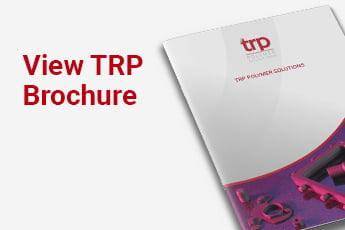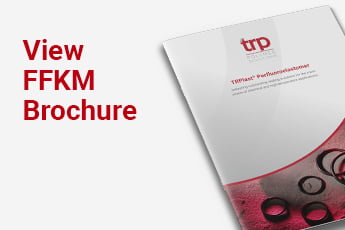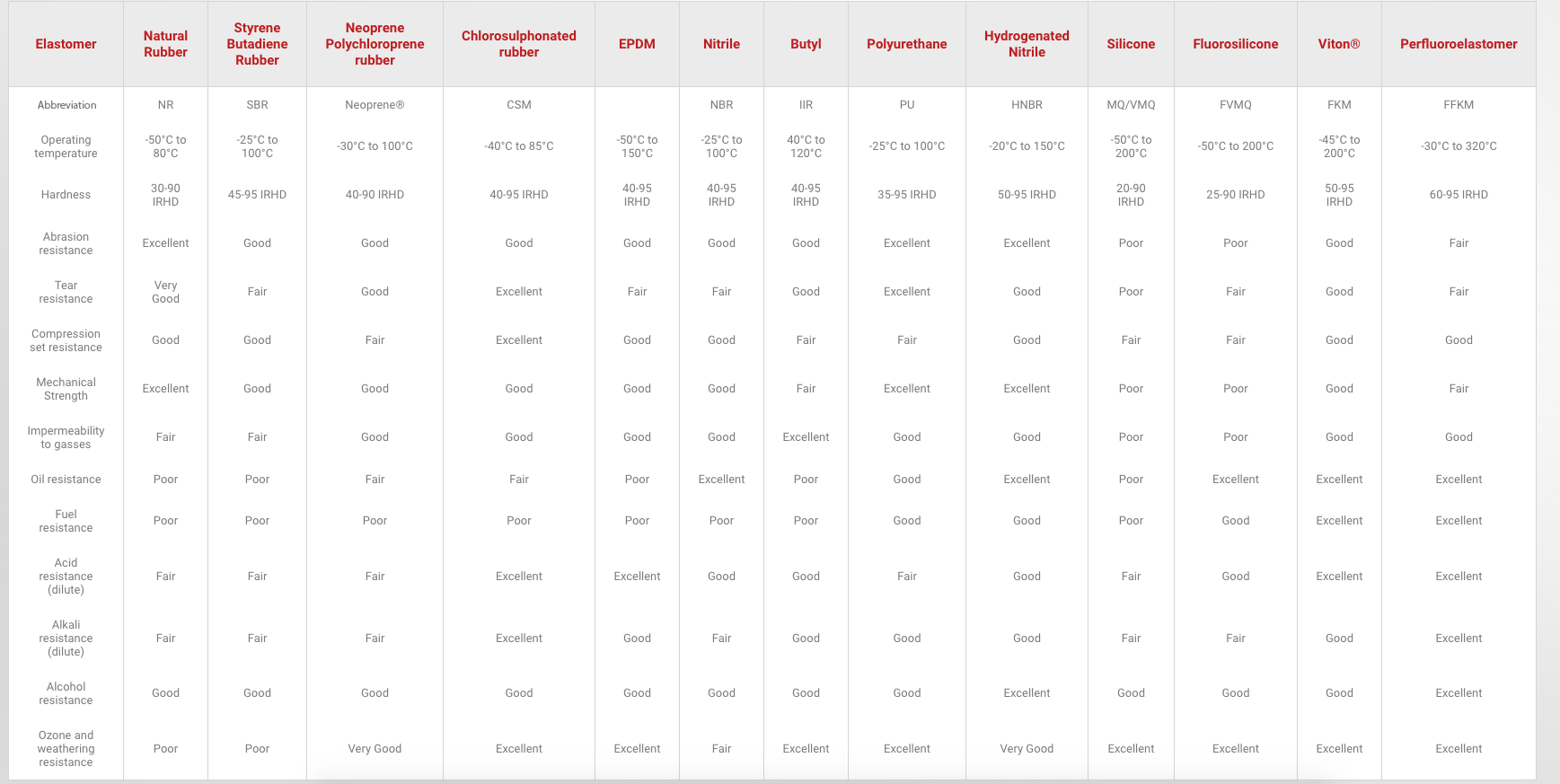The chemistry behind FFKM’s temperature range
Perfluoroelastomer (FFKM) combines the chemical resistance of polytetrafluoroethylene (PTFE) with the flexibility and elasticity of FKM and it’s FFKM’s fully fluorinated backbone that gives it its chemical, oxidative and thermal stability. In this article, TRP Polymer Solutions explores the chemical properties that lead to FFKM’s temperature range capabilities.
Benefits of FFKM
FFKM is the ideal material for demanding applications that require high performance ‘O’ rings. The unique properties of this remarkable material provide the three-fold benefits of high seal integrity, reduced maintenance and operating costs, and improved safety.
Some of the further benefits of FFKM include:
- Temperature range from -55°C to +330°C
- Exceptional thermal resistance
- Excellent chemical resistance
- Extremely low permeability
- Versions with FDA approval
- High reliability for static and dynamic applications
- Explosive decompression resistant compounds
- Compounds with 50 to 90 Shore A hardnesses
- Steam resistant compounds
Crosslinking enables FFKM rubber to achieve high-temperature range
A three-dimensional network structure is the foundation of any rubber-like material. In the case of perfluoroelastomers, a cure site monomer (CSM) is introduced to enable the formation of a three-dimensional network. Cyano-functional vinyl ethers are the most noteworthy CSM for FFKMs because they can be cured using a variety of curatives, including organic peroxide which results in a network with near universal chemical resistance.
Meanwhile, using the di-functional curative diaminobisphenol AF produces a benzoxazole crosslink, which results in networks that exhibit excellent thermal stability. Halogenated monomers (e.g. 1-bromo-trifluoroethane) are another common CSM for the manufacture of FFKM and are normally crosslinked using peroxide-based systems. However, peroxide curing can make FFKM more prone to thermal and oxidative degradation.
Using crosslink theory, TRP Polymer Solutions is able to develop grades of FFKM with wide temperature ranges that are capable of operating in extremes of temperature from -55°C to +330°C. As such, FFKM is an extremely useful material for sealing solutions in hazardous industries.
Chemical structure enables FFKM rubber to broaden temperature range
FFKM contains Carbon-Fluorine bonds which are generally regarded as the strongest single bond in organic Chemistry. It is this strength on an atomic scale that gives the material such high chemical, thermal and oxidation resistance on the finished product. FFKM is the only elastomer to contain no carbon-hydrogen bonds which are considered a weak link for thermal and chemical resistance.
TRP Polymer solutions low-temperature FFKM can combine the excellent chemical resistance and compression set resistant with outstanding low-temperature flexibility. It utilizes unique monomer technology to extend the low temperature sealing down to -55OC whilst retaining the best in class chemical resistance.
FFKM max temperature limitations
It is worth noting that repeated exposure to high temperatures can lead to crosslinking structures becoming damaged and elastomeric seals degrading as a result. FFKM seals used beyond their maximum continuous service temperature limit over a prolonged period are likely to become hard and brittle. As such, they will lose their sealing effectiveness, leading to costly downtime, product loss and potential endangerment of personnel.
When elastomeric seals degrade under high temperatures, it can cause outgassing that contaminates the process environment. When FFKM degrades it can emit Hydrofluoric acid (HF), which can damage equipment – particularly stainless steel components. Therefore, despite FFKM’s exceptional resistance to extremes of temperature, this capability is finite and care must be taken to monitor and maintain the integrity of your FFKM seals.
TRP Polymer’s technical experts have many years of experience in the development of high-performance FFKM sealing materials and are only too happy to offer guidance and advice. Speak to one of our experts today on 01432 268899 or email sales@trp.co.uk to discuss your requirements.






